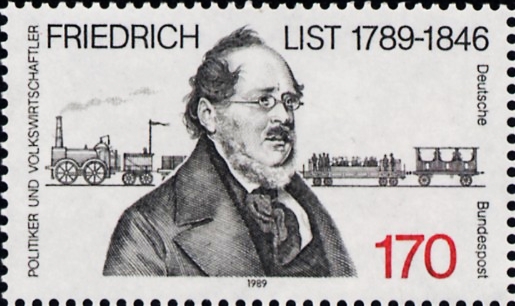

RECOMMENDED READING
After years of dismissing the rise of critical theory-inspired identity politics, many conservatives have become “woke” to just how divisive this movement is. The problem, however, is that some free market fundamentalists see both radical intersectionalists and Hamiltonian supporters of national developmentalism as desecrators of the Founding Father’s principles.
In The Plot to Change America Heritage Foundation’s Mike Gonzalez highlights the Marxist (or more accurately, the Marcusian) origins of much of the far left’s identity politics and how it threatens America’s classical liberal values. But he goes further, writing with respect to center-right advocates of a national industrial strategy, that to “one degree or another they share the critical theorist’s disdain for liberalism and its emphasis on ‘individual autonomy,’ consumerism, and free markets, especially global capitalism, and some are willing to accept state intervention. [Oren] Cass, for example, advocates for a national industrial policy.”
Heritage’s Kim Holmes writes “Do we want to empower a government even more in industrial and other kinds of economic and social policy that will surely use that very increased power to destroy the things that we love and believe about this country?” For Holmes, establishing up a national industrial lending bank equates with ending equality of opportunity, trampling free speech, and overturning monuments to the Founders. Oh, the horror!
I understand their fear. As Holmes writes, “The conservative movement today faces huge threats to our most basic principles.” But they are making a mistake by trying to fight a two-front war: one against an identity-politics far left that wants to fundamentally change America, and the other against Hamiltonians that want to preserve and strengthen America.
Market fundamentalists make this argument because they seem to think that the Founders were all anti-federalists. For them Jefferson and other Democratic-Republicans were the only real Founders and they have erased the Federalists, including Hamilton, from history. As Michael Lind wrote, Jefferson’s “ideal America was based on states’ rights, agrarian capitalism and isolationism. Hamilton, on the other hand, envisioned the nation that we have become, a centralized industrial superpower with civil rights enforced by the Federal Government.”
Despite their efforts to cancel the Federalists and the Whigs in favor of the Antifederalists and Democratic Republicans, the former are indeed part of the America fabric, not some Germanic collectivist import. In Federalist No. 11 Hamilton wrote “Under a vigorous national government, the natural strength and resources of the country, directed to a common interest, would baffle all the combinations of European jealousy to restrain our growth.”
Yet, Cato fellow, Roger Pilon asked: “Where in America is the constitutional authority for such a policy?… Search that document as you will, you will find in it no power to engage in ‘industrial policy,’ not least because such a power, as discussed below, would defeat the very purpose of the document – to authorize and institute a government to secure our individual rights.”
However, as Mike Lind writes in Land of Promise, one of the first acts of the newly established federal government was to establish a state-owned manufacturing industry—the federal Arsenals. They were scattered throughout the country to jump start regional economic development, which they did. The first Congress, which included many drafters of the Constitution, passed tariffs for infant industry protection as well as revenue, as outlined in Hamilton’s Report on Manufactures. And although it was a state of New Jersey project, Hamilton and others created the town of Paterson. It was an artificial tech campus powered by the waterfall on the Passaic River. It failed at first but eventually became the silk Capitol of America, contributed to aerospace and submarines, etc. One would, I hope, give the drafters the benefit of the doubt on whether their industrial policies were consistent with the Constitution.
These conservatives believe in one interpretation of the constitution: the limits of enumerated powers. But in 1819 in McCulloch vs Maryland, Justice Marshall argued that the constitution gave the federal government the implied power to create a national bank, even if there was no specific power. So clearly the Constitution does not prohibit a national industrial policy. It gives Congress the powers to promote the general welfare, manage trade and maintain national defense. The market fundamentalists’ argument is on shaky ground if they believe the nation we went off the rails in 1819.
If they believe this, they should be consistent and call for abolishment of the Departments of Education, Transportation, Labor, and Commerce. Granted, some do call for such wholesale elimination. But having a robust national industrial policy is no different Constitutionally than having a robust transportation, labor, or education policy. So unless you want to abolish most federal agencies, adopting a robust national industrial strategy is clearly Constitutional and in line with the Founders intentions.
Pilon goes on to write that the general welfare clause “was an additional shield, aimed that Congress’s enumerated powers be exercised for general and not any particular welfare…. When they distinguished the private from the public the founding generation got it right.” They did get it right, but the question is whether industrial policy is in the general welfare or particular welfare. And there are plenty of reasons to believe that a strong U.S. advanced industrial economic base is in the general welfare.
That is the heart of the matter, for the market fundamentalists won’t imbue any private action with any public benefit. The founders did not agree. Delegate to the Constitutional Convention, Tench Cox wrote that he provided his report to Congress on manufacturing so that it “might enable congress impartially to promote the public good and the citizens to pursue their respective interests.”
So, by all means, free market conservatives should push back against the illiberal components of the social justice movement (although not all of the components are illiberal). But putting conservatives and moderates who embrace a national industrial strategy in the same boat as far left critical theory-inspired, identity politics warriors is just plain dumb, substantively and politically.
Recommended Reading
Should There be Legal and Ethical Limits to National Developmentalism?
ITIF recently released a report about how “innovation mercantilist” policies were instrumental in enabling China to dominate the global telecom equipment industry, and how that rise came at the expense Read more…
I Finally Agree with Krugman
I never thought I would find myself in wholehearted agreement with Paul Krugman.
How the Policy Consensus Changes in America
There are two theories of how major policy changes happen in the United States of America. One theory is popular, widely believed and mistaken. The other is correct.













